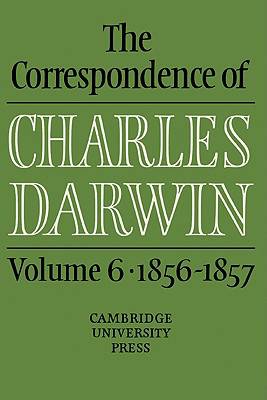
- Afhalen na 1 uur in een winkel met voorraad
- Gratis thuislevering in België vanaf € 30
- Ruim aanbod met 7 miljoen producten
- Afhalen na 1 uur in een winkel met voorraad
- Gratis thuislevering in België vanaf € 30
- Ruim aanbod met 7 miljoen producten
Zoeken
€ 251,45
+ 502 punten
Uitvoering
Omschrijving
This volume covers the culmination of Darwin's work on species. From early in 1856, when he was persuaded that the time had come to publish an account of his heterodox theories through 1857, Darwin's letters document the labor involved in composing his "big species book," his zest for research, and his unflagging determination to succeed. As always, old friends and more recent acquaintances are drawn into the project. Darwin writes for the first time to Alfred Russel Wallace seeking specimens of Malayan fowls. Joseph Dalton Hooker is his sounding board for botanical speculations and Thomas Henry Huxley soon takes up a similar role in matters of comparative anatomy and embryology. William Bernhard Tegetmeier is the provider of pigeons and poultry and Asa Gray dispatches from Massachusetts invaluable botanical data. Darwin fully exploits his gift for drawing the best from his correspondents and, collectively, their letters provide a remarkable survey of what was--and was not--believed about the nature and origin of species in the middle years of the century.
Specificaties
Betrokkenen
- Auteur(s):
- Uitgeverij:
Inhoud
- Aantal bladzijden:
- 720
- Taal:
- Engels
- Reeks:
Eigenschappen
- Productcode (EAN):
- 9780521255868
- Verschijningsdatum:
- 30/11/1990
- Uitvoering:
- Hardcover
- Formaat:
- Genaaid
- Afmetingen:
- 167 mm x 242 mm
- Gewicht:
- 1324 g

Alleen bij Standaard Boekhandel
+ 502 punten op je klantenkaart van Standaard Boekhandel
Beoordelingen
We publiceren alleen reviews die voldoen aan de voorwaarden voor reviews. Bekijk onze voorwaarden voor reviews.











